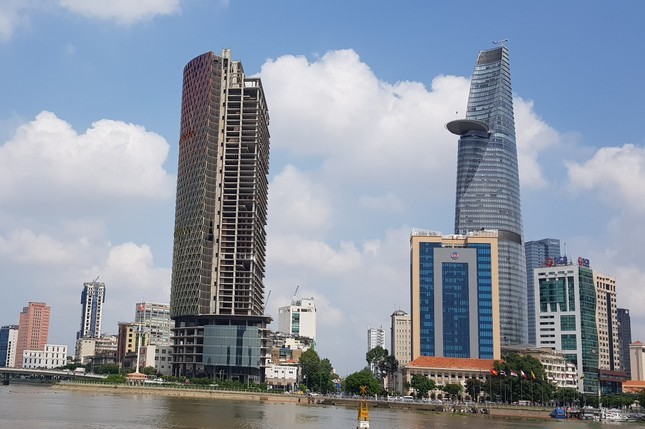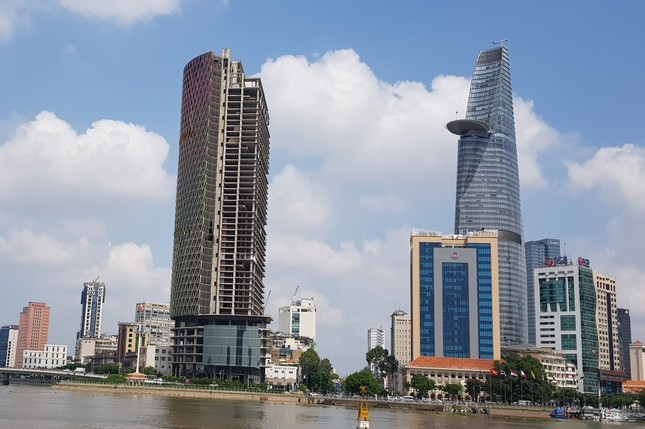The HCMC Party Committee has recently organized a conference to consider and approve the proposal on the necessity and method of adjusting the land price list according to Decision No. 02/2020/QD-UBND dated January 16, 2020, of the HCMC People’s Committee.
According to the HCMC Department of Natural Resources and Environment, the Land Law 2024 stipulates that localities have the right to apply the land price list according to Decision No. 02 or adjust the land price list according to this Law to suit the actual situation of land prices in HCMC.

In the short term, housing prices, especially apartment prices, will continue to rise due to limited new supply in the market.
In case of adjusting the land price list according to the Land Law 2024, land valuation must ensure the principles according to regulations in Clause 1, Article 158 of the Land Law 2024, including the market principle.
The HCMC Department of Natural Resources and Environment has reported four land price proposals for the consideration and approval of the HCMC Party Committee. These are the schemes that the Party Committee of the HCMC People’s Committee previously directed the Department of Natural Resources and Environment to coordinate with departments, branches, district-level People’s Committees, Thu Duc City, and consulting units to analyze.
Previously, the HCMC Department of Natural Resources and Environment issued a draft decision adjusting Decision No. 02/2020/QD-UBND of the HCMC People’s Committee on the land price list in the area. According to this land price list, one district and four districts had land prices at some land-use positions increased by more than 30 times, especially in Hoc Mon district, with a price increase of up to 51 times.
Specifically, land prices in District 1 increased by 5 times; District 3 increased by 4-9 times; District 4 increased by 11 times; District 5 and District 7 increased by 6 times; District 6 increased by 5-11 times; District 8 increased by 4-18 times; District 10 increased by 5-6 times; District 11 increased by 4-9 times; District 12 increased by 3-33 times; Binh Thanh District increased by 5-13 times; Go Vap District increased by 7-11 times; Phu Nhuan District increased by 7-8 times; Tan Binh District increased by 7-12 times; Tan Phu District increased by 7-17 times; Binh Tan District increased by 9-17 times; Thu Duc City increased by 6-35 times; Hoc Mon district increased by 5-51 times; Cu Chi district increased by 9-31 times; Binh Chanh district increased by 2-36 times; Nha Be district increased by 7-23 times; Can Gio district increased by 8-23 times.
According to Ms. Nguyen Thi Hong Van, Deputy Director of the Valuation and Financial Consulting Department of Savills Hanoi, the most significant impact of the Land Law 2024 on the real estate market is that the Government has removed the framework on land prices, giving localities the right to determine land prices annually based on market prices instead of every five years as in the old law. In addition, the Law also stipulates that land can only be revoked when resettlement housing has been handed over. This regulation will help speed up the compensation and site clearance process, facilitating the implementation of projects.
“However, the fact that compensation prices are close to market prices, along with strict compensation support, will increase investment costs, leading to higher real estate prices. Savills recorded no new supply below VND 45 million/sqm in Q2/2024. Since 2020, the primary supply of Grade C apartments has decreased by 45% each year,” said Ms. Van.
In the short term, housing prices, especially apartment prices, will continue to rise due to limited new supply in the market, with about 2,700 units in Q2/2024. 98% of the supply comes from existing projects, with almost no new projects.
Ms. Van also emphasized that looking at the future supply in Hanoi, there are about 100,000 apartments from 2025 onwards, 10 times higher than the current supply for sale. These products are mainly concentrated in the suburbs. When the supply of apartments in the suburbs improves, it will be difficult to maintain the ability to increase prices as it is now.
What should landlords note?
Ms. Cao Thi Thanh Huong, Senior Manager of Savills HCMC Research, said that according to the provisions of Article 9 of the Real Estate Business Law 2023, individuals doing small-scale real estate business do not have to establish enterprises or cooperatives. Meanwhile, other organizations doing real estate business must establish enterprises or cooperatives.
The definition of small-scale business (in terms of quantity, area, or value for different types of real estate) needs to wait for the Government’s decrees and guiding documents to determine the affected subjects.
In addition, landlords are currently very interested in the concept of a household because this is an object that is not subject to the requirement to establish an enterprise or cooperative under the new law. In the context of Vietnam, there is still a large amount of real estate for rent, which is owned by households, jointly owned, or has not been divided into inheritances, with many rights, obligations, and complex realities of life. Therefore, clear guidance is needed to avoid negative consequences. This will help people conveniently do real estate business but still fully perform their legal obligations.
Ensuring Effective Implementation of the Land Law 2024
According to Deputy Minister of Natural Resources and Environment, Le Minh Ngan, the workload for preparing the necessary content to ensure the effective enforcement of the Land Law 2024 from January 1, 2025 is significant, as it requires the completion of 9 Decrees, 6 Circulars, 1 Prime Minister’s Decision, and 18 detailed local provisions.
Removing Land Policy Bottlenecks, Creating New Resources for Development
The passing of the Land Law by the National Assembly has been well-received by society, with expectations that policy barriers and bottlenecks will be quickly dismantled and eliminated. This will effectively utilize land resources, contributing to the creation of new resources that will promote socio-economic development…
















